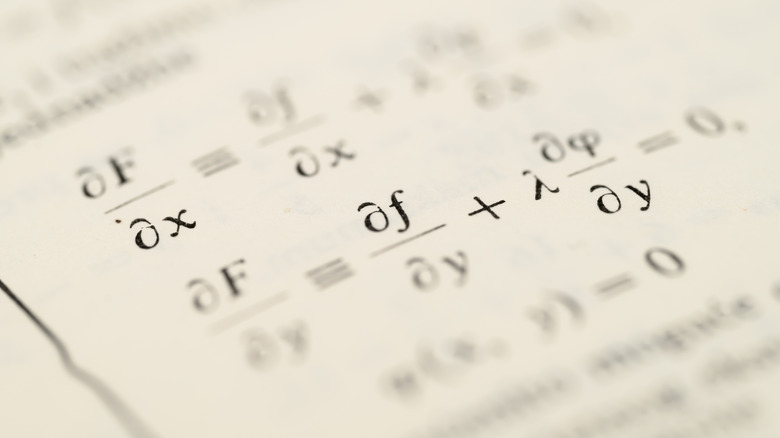How To Calculate FXY Partial Derivatives
Partial derivatives in calculus are derivatives of multivariate functions taken with respect to only one variable in the function, treating other variables as though they were constants. Repeated derivatives of a function f(x,y) may be taken with respect to the same variable, yielding derivatives Fxx and Fxxx, or by taking the derivative with respect to a different variable, yielding derivatives Fxy, Fxyx, Fxyy, etc. Partial derivatives are typically independent of the order of differentiation, meaning Fxy = Fyx.
Step 1
Calculate the derivative of the function f(x,y) with respect to x by determining d/dx (f(x,y)), treating y as if it were a constant. Use the product rule or chain rule if necessary. For example, the first partial derivative Fx of the function f(x,y) = 3x^2*y – 2xy is 6xy – 2y.
Step 2
Calculate the derivative of the function with respect to y by determining d/dy (Fx), treating x as if it were a constant. In the above example, the partial derivative Fxy of 6xy – 2y is equal to 6x – 2.
Step 3
Verify that the partial derivative Fxy is correct by calculating its equivalent, Fyx, taking the derivatives in the opposite order (d/dy first, then d/dx). In the above example, the derivative d/dy of the function f(x,y) = 3x^2*y – 2xy is 3x^2 – 2x. The derivative d/dx of 3x^2 – 2x is 6x – 2, so the partial derivative Fyx is identical to the partial derivative Fxy.
